
Samarkand: The Jewel of the Silk Road
Samarkand, one of the oldest cities in Central Asia, is a fascinating blend of history and culture. Known as the Jewel of the Silk Road, Samarkand has been a crossroads of world cultures for more than two millennia. Its rich history is evident in its stunning architecture, bustling bazaars, and vibrant traditions. Begin your journey at Registan Square, the heart of Samarkand. This iconic square is surrounded by three grand madrasahs, each adorned with intricate tilework and mosaics. The Ulugh Beg Madrasah, built in the 15th century, is a testament to the city's rich educational heritage. Don't miss the chance to stroll through the square at night when the buildings are illuminated, adding a magical glow to the surroundings. Next, visit the Shah-i-Zinda necropolis, a sprawling complex of mausoleums that dates back to the 9th century. The tombs are adorned with some of the most exquisite tilework in the Islamic world. Each mausoleum tells a story of Samarkand's past, and the narrow alleyways of the complex create a maze-like experience for visitors. Samarkand is also home to the majestic Bibi-Khanym Mosque, once one of the largest and most magnificent mosques in the Islamic world. Though partially in ruins, the mosque's colossal size and intricate details still evoke a sense of awe. Nearby, the bustling Siab Bazaar offers a sensory overload of sights, sounds, and smells, where you can sample local delicacies and purchase unique souvenirs. For a deeper understanding of Samarkand's history and culture, visit the Afrasiab Museum. This museum is located on the site of ancient Afrasiab, the original settlement of Samarkand. It houses a collection of artifacts that provide insight into the city's long and storied past. Samarkand is a city that captivates the imagination and transports visitors to a different time. Its blend of ancient and modern makes it a must-visit destination for anyone interested in history, architecture, and culture.
Local tips in Samarkand
- Visit Registan Square at night to see the stunning illumination of the madrasahs.
- Wear comfortable shoes, as exploring the historical sites involves a lot of walking.
- Try local dishes like plov and samsa at the Siab Bazaar.
- Hire a local guide to get in-depth knowledge about the history and significance of each site.
- Carry cash, as many smaller vendors and markets may not accept credit cards.
Samarkand: The Jewel of the Silk Road
Samarkand, one of the oldest cities in Central Asia, is a fascinating blend of history and culture. Known as the Jewel of the Silk Road, Samarkand has been a crossroads of world cultures for more than two millennia. Its rich history is evident in its stunning architecture, bustling bazaars, and vibrant traditions. Begin your journey at Registan Square, the heart of Samarkand. This iconic square is surrounded by three grand madrasahs, each adorned with intricate tilework and mosaics. The Ulugh Beg Madrasah, built in the 15th century, is a testament to the city's rich educational heritage. Don't miss the chance to stroll through the square at night when the buildings are illuminated, adding a magical glow to the surroundings. Next, visit the Shah-i-Zinda necropolis, a sprawling complex of mausoleums that dates back to the 9th century. The tombs are adorned with some of the most exquisite tilework in the Islamic world. Each mausoleum tells a story of Samarkand's past, and the narrow alleyways of the complex create a maze-like experience for visitors. Samarkand is also home to the majestic Bibi-Khanym Mosque, once one of the largest and most magnificent mosques in the Islamic world. Though partially in ruins, the mosque's colossal size and intricate details still evoke a sense of awe. Nearby, the bustling Siab Bazaar offers a sensory overload of sights, sounds, and smells, where you can sample local delicacies and purchase unique souvenirs. For a deeper understanding of Samarkand's history and culture, visit the Afrasiab Museum. This museum is located on the site of ancient Afrasiab, the original settlement of Samarkand. It houses a collection of artifacts that provide insight into the city's long and storied past. Samarkand is a city that captivates the imagination and transports visitors to a different time. Its blend of ancient and modern makes it a must-visit destination for anyone interested in history, architecture, and culture.
When is the best time to go to Samarkand?
Iconic landmarks you can’t miss
Registan Square
Discover the architectural splendor and rich history of Registan Square, a UNESCO World Heritage site in the heart of Samarkand, Uzbekistan.

Amir Temur Mausoleum Gur-i Amir Сomplex
Discover the breathtaking Amir Temur Mausoleum in Samarkand, a stunning example of Timurid architecture and a significant historical landmark.
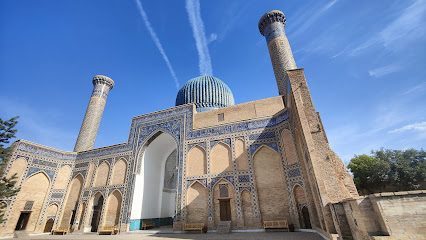
Shah-i-Zinda
Explore the stunning mausoleums of Shah-i-Zinda, a captivating historical landmark in Samarkand, showcasing exquisite tile work and rich cultural heritage.
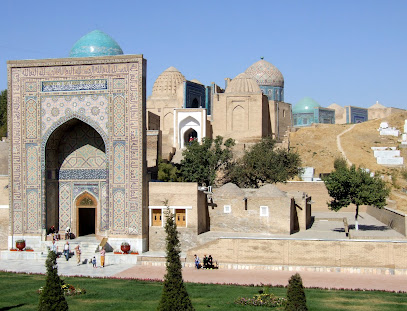
Siyob Bozor
Experience the vibrant culture and flavors of Uzbekistan at Siyob Bozor, Samarkand's most famous farmers' market, where local produce and crafts come alive.
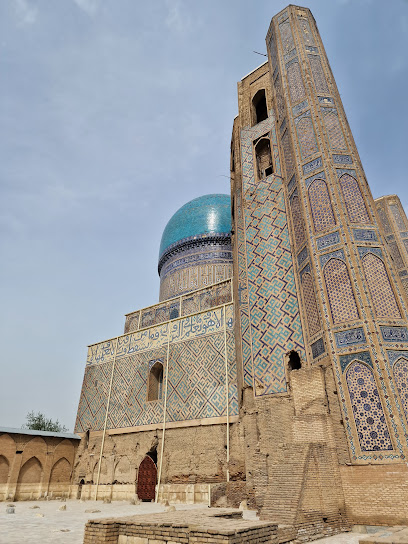
Observatory of Ulugbek
Explore the Observatory of Ulugbek, a historical landmark in Samarkand, where ancient astronomy meets rich cultural heritage.
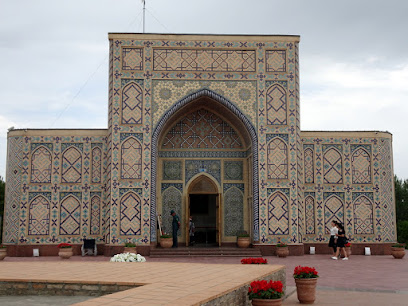
Bibi-Khanym Mosque
Discover the grandeur of Bibi-Khanym Mosque, an architectural marvel and a symbol of Samarkand's rich historical heritage.
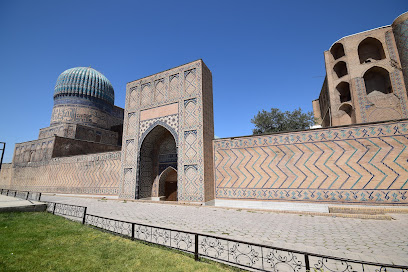
Afrosiyab Settlement
Discover the ancient wonders of Afrosiyab Settlement, a UNESCO World Heritage site in Samarkand, showcasing the rich history of Central Asia's Sogdian civilization.
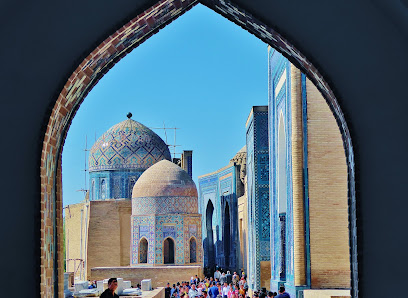
Memorial Complex of Imam Al Bukhari
Explore the serene Memorial Complex of Imam Al Bukhari, a tribute to Islamic scholarship in the heart of Uzbekistan's rich cultural heritage.
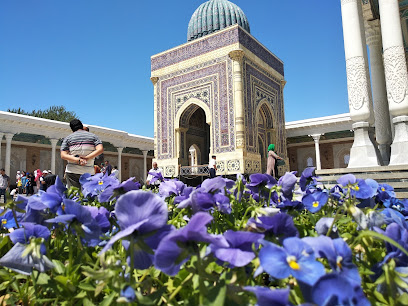
Khoja Daniyor Mausoleum
Discover the serene beauty and historical significance of Khoja Daniyor Mausoleum, a spiritual landmark in the heart of Samarkand, Uzbekistan.
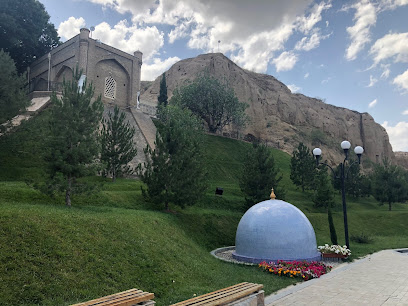
Afrasiyab Museum
Explore the heart of Uzbekistan's history at Afrasiyab Museum in Samarkand – a treasure trove of ancient artifacts and captivating stories.
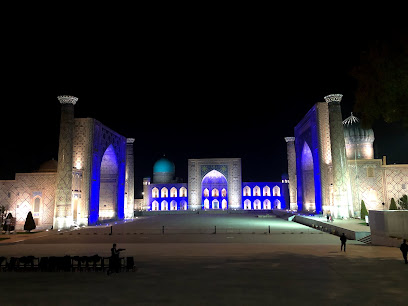
Rukhobod Mausoleum
Explore the historic Rukhobod Mausoleum in Samarkand, a stunning architectural gem showcasing Uzbekistan's rich cultural heritage and artistry.
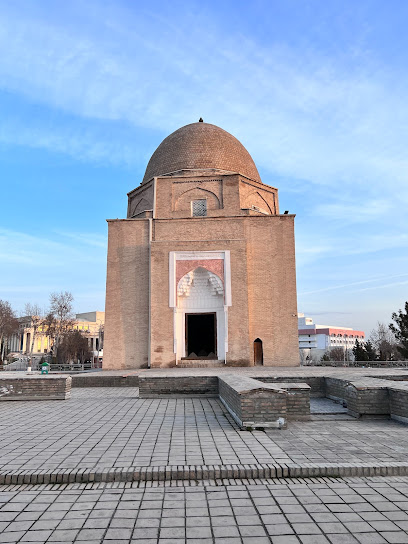
Amir Temur Monument
Explore the Amir Temur Monument in Samarkand, a magnificent tribute to the legendary conqueror surrounded by lush gardens and rich history.
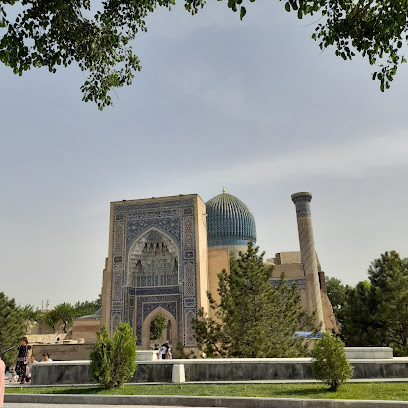
Tilya-Kori Madrasah
Explore the architectural marvel of Tilya-Kori Madrasah in Samarkand, a historical landmark rich in Islamic art and culture.
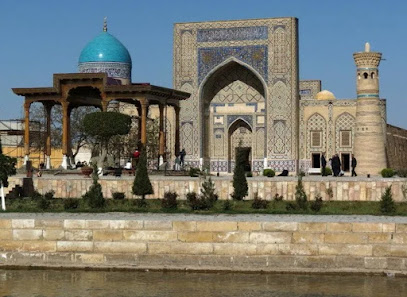
Sherdor Madrassah
Experience the rich history and stunning architecture of Sherdor Madrassah, a must-visit historical landmark in Samarkand, Uzbekistan.
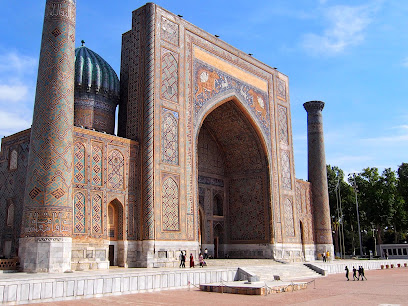
Mausoleum of Islam Karimov
Discover the Mausoleum of Islam Karimov in Samarkand, a stunning tribute to Uzbekistan's history and a peaceful place for reflection.
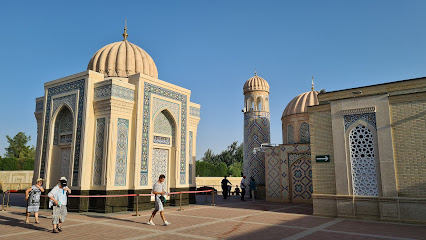
Unmissable attractions to see
Registan Square
Discover the enchanting Registan Square in Samarkand, a historical landmark with stunning architecture and rich cultural significance.
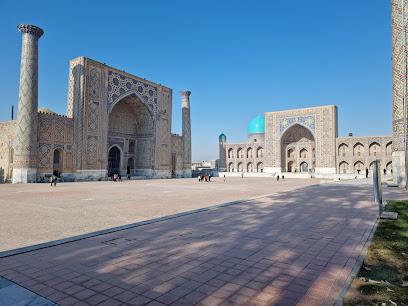
Amir Temur Mausoleum Gur-i Amir Сomplex
Explore the captivating Amir Temur Mausoleum, a historical marvel in Samarkand, showcasing stunning architecture and rich cultural heritage.
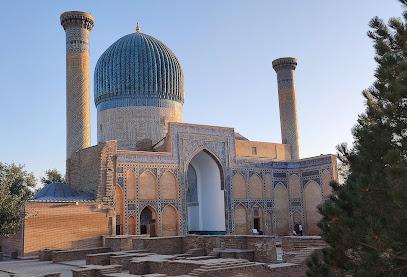
Shah-i-Zinda
Explore Shah-i-Zinda, a stunning necropolis in Samarkand, showcasing exquisite Islamic architecture and rich historical significance.
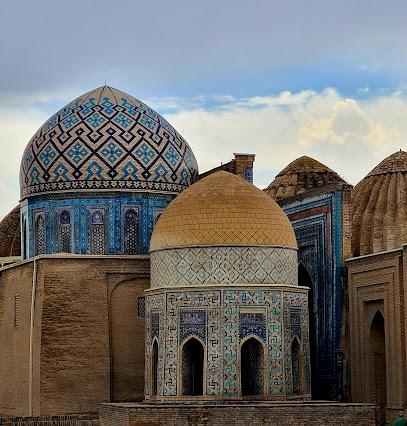
Observatory of Ulugbek
Explore the Ulugh Beg Observatory in Samarkand, a historical landmark where ancient astronomy meets breathtaking architecture and stunning views.
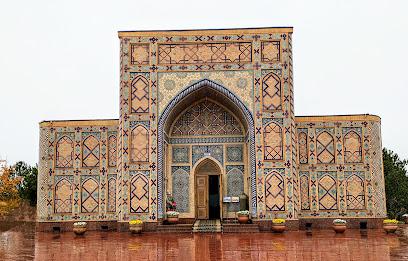
Bibi-Khanym Mosque
Explore the Bibi-Khanym Mosque in Samarkand, an architectural gem of the Timurid Empire and a symbol of Uzbekistan's rich history and culture.
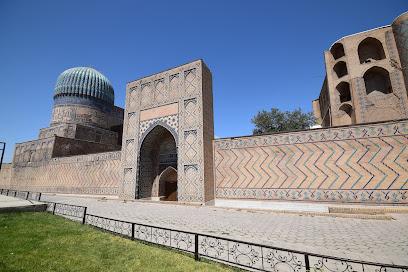
Afrasiyab Museum
Discover the rich history of the Silk Road at Afrasiyab Museum in Samarkand, featuring ancient artifacts and stunning murals showcasing Uzbekistan's cultural heritage.
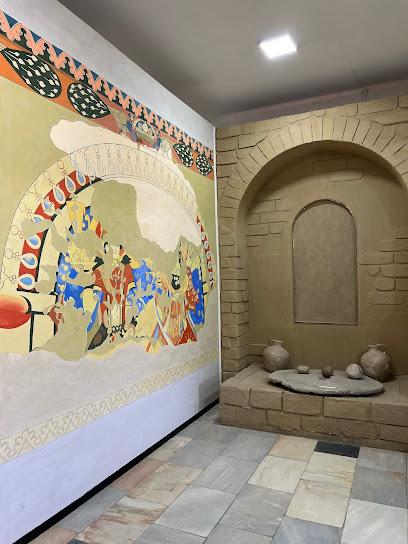
Hazrat Khizr Mosque
Discover the stunning Hazrat Khizr Mosque in Samarkand, a serene architectural gem reflecting Uzbekistan's rich Islamic heritage.
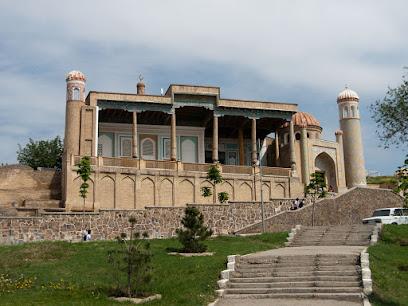
Railway station
Discover the vibrant hub of Samarkand Railway Station, your gateway to the enchanting Silk Road and the rich culture of Uzbekistan.
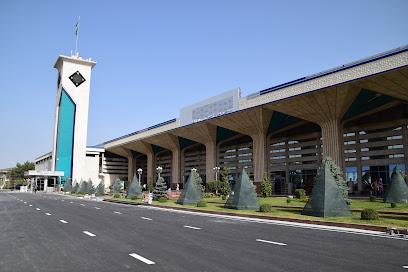
The eternal City | Вечный город
Discover the breathtaking hiking trails and rich historical landscapes of The Eternal City in Samarkand, Uzbekistan. A hiker's dream awaits!
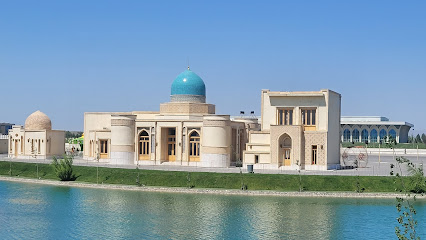
Registan viewing platform
Experience the breathtaking views of Samarkand’s Registan from the iconic viewing platform, a must-see for every traveler seeking history and beauty.
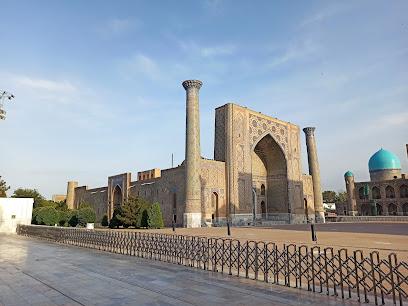
Silk Road Samarkand
Explore the beauty of Silk Road Samarkand, where history and nature intertwine along a stunning rowing canal in Uzbekistan.
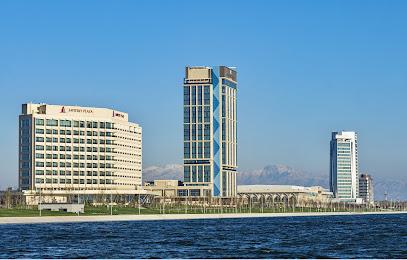
Bibi Khanym Mausoleum
Discover the architectural splendor of Bibi Khanym Mausoleum, a historical gem in Samarkand, showcasing the glory of the Timurid Empire.
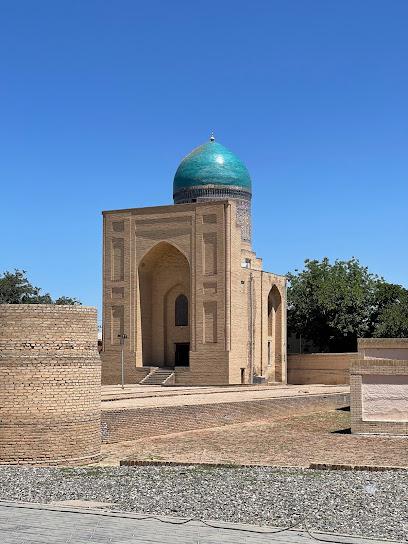
Museum of Wine-Making named after Khovrenko
Explore the rich heritage of winemaking in Uzbekistan at the Museum of Wine-Making named after Khovrenko, an unforgettable cultural experience in Samarkand.
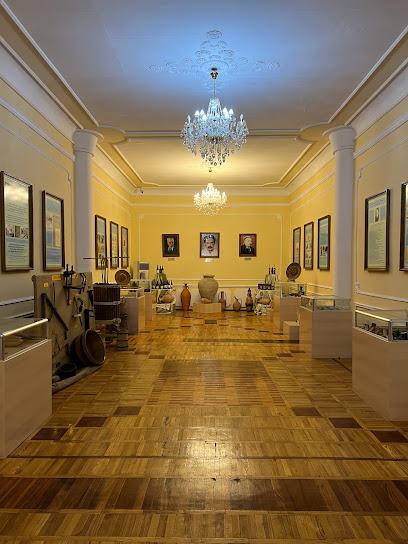
Kyzyl Chaihana (Qizil Choyxona)
Experience authentic Uzbek cuisine in a warm and welcoming atmosphere at Kyzyl Chaihana, the perfect dining destination in Samarqand.

Gumbaz Synagogue
Explore the beauty and history of Gumbaz Synagogue, a cultural gem in Samarkand showcasing Jewish heritage and architectural splendor.
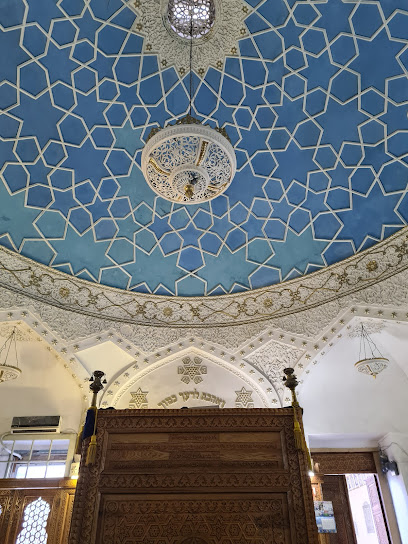
Essential places to dine
Samarkand Restaurant
Experience authentic Uzbek cuisine at Samarkand Restaurant - where every meal tells a story of culture and tradition.
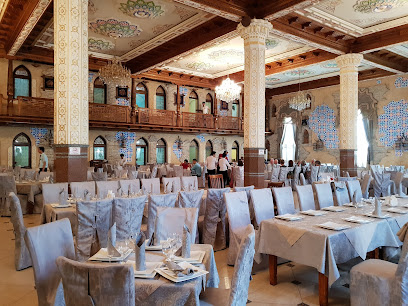
Platan
Experience authentic Uzbek cuisine at Platan in Samarkand – where tradition meets modern dining in a vibrant atmosphere.
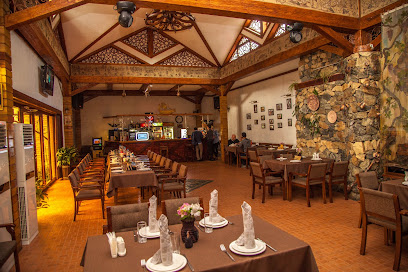
Emirhan restaurant
Discover the rich flavors of Uzbekistan at Emirhan Restaurant in Samarkand – where traditional cuisine meets warm hospitality.
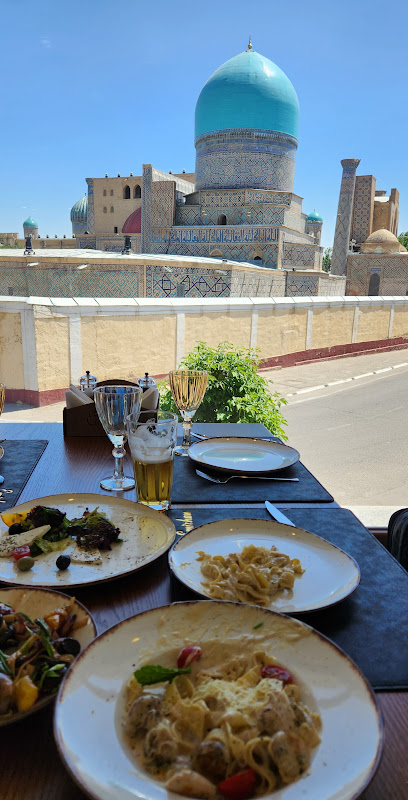
Bibikhanum Teahouse
Experience authentic Uzbek cuisine at Bibikhanum Teahouse in Samarkand – where tradition meets flavor.
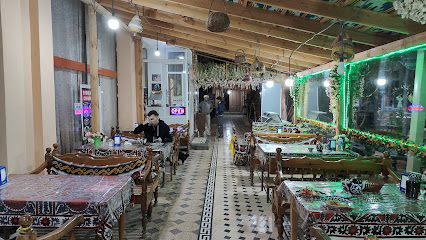
Oasis Garden
Discover traditional Uzbek flavors amidst lush greenery at Oasis Garden in Samarkand – where dining becomes an unforgettable experience.
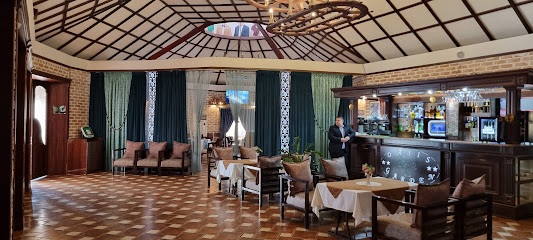
Old City Restaurant
Discover authentic Uzbek cuisine at Old City Restaurant in Samarkand – where tradition meets taste in a charming setting.
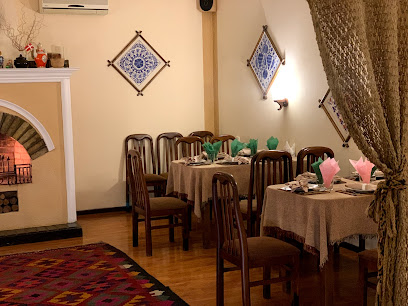
Shokhrukh Nur
Experience the authentic flavors of Uzbekistan at Shokhrukh Nur in Samarkand – a true culinary gem for every traveler.
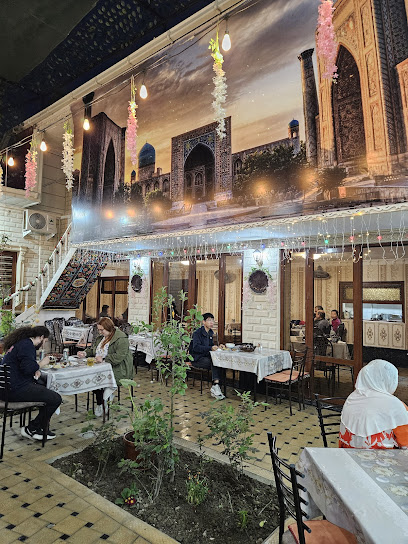
Sogdiana Cafe
Discover Sogdiana Cafe in Samarkand – where family-friendly dining meets delightful Uzbek flavors in an inviting atmosphere.
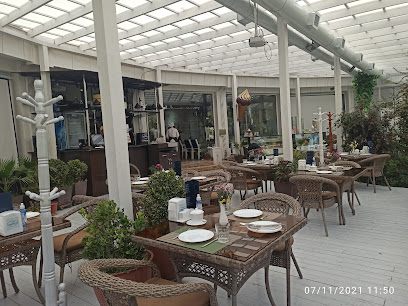
Shoxjaxon Milliy Taomlar
Experience authentic Uzbek cuisine at Shoxjaxon Milliy Taomlar in Samarkand – where family-friendly dining meets cultural richness.
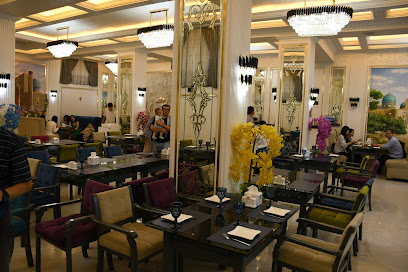
Restoran «AFROSIYOB»Milliy taomlar
Discover the flavors of Uzbekistan at Restoran «AFROSIYOB», where traditional cuisine meets warm hospitality in the heart of Samarkand.
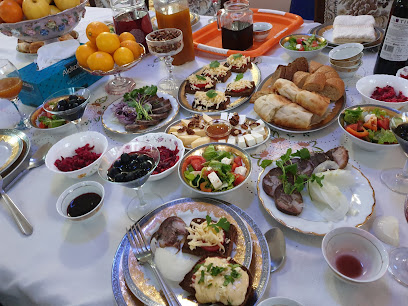
Ikrom Shashlik
Discover the authentic taste of Uzbekistan at Ikrom Shashlik in Samarqand - home to delicious shashlik and traditional dishes.
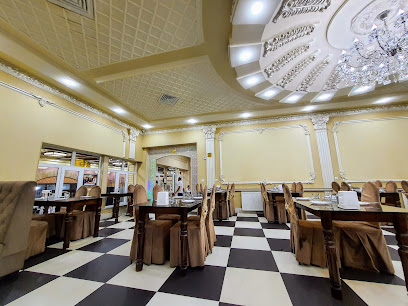
Sirius Restaurant
Discover authentic Uzbek cuisine at Sirius Restaurant in Samarkand—where tradition meets taste in every dish.
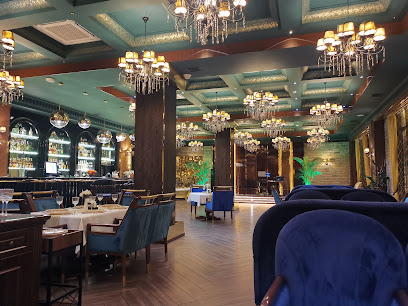
Manresa
Experience the vibrant tastes of Uzbekistan at Manresa in Samarkand – where tradition meets modern culinary artistry.
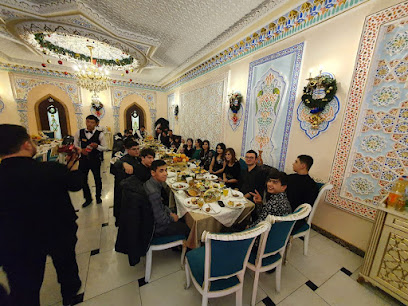
Xan Atlas Restaurant
Experience authentic Uzbek cuisine at Xan Atlas Restaurant in Samarkand - a culinary gem blending tradition with flavor.
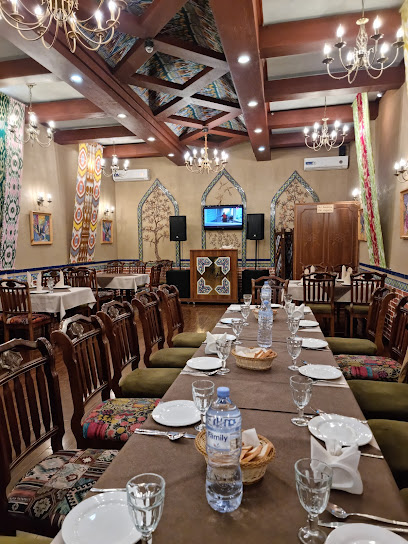
Boulevard restaurant&bakery
Experience the best of Uzbek cuisine at Boulevard Restaurant & Bakery in Samarkand—where tradition meets modernity in every bite.
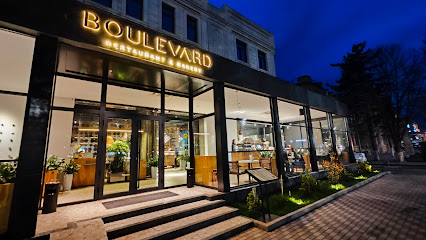
Markets, malls and hidden boutiques
Makon Mall
Discover the perfect blend of modern shopping and rich cultural heritage at Makon Mall in Samarkand, Uzbekistan.
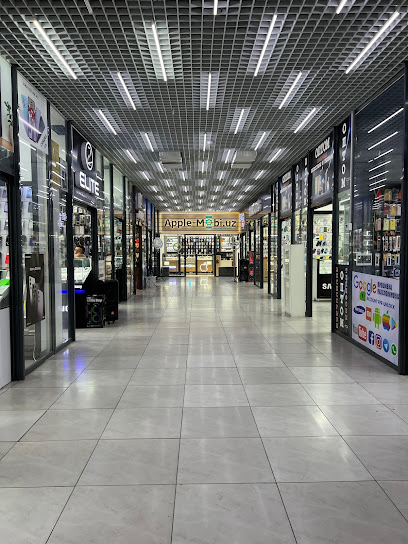
Shodiyona Shopping Center
Experience the vibrant shopping and culinary delights at Shodiyona Shopping Center in Samarkand, where tradition meets modernity.
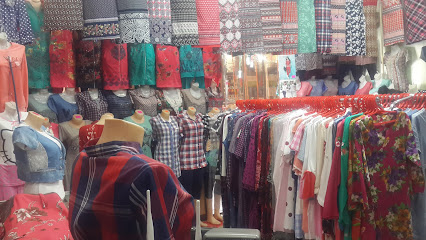
Choychana Mubarak
Uncover the treasures of the Silk Road at Choychana Mubarak, an antique store in Samarkand that showcases Uzbekistan's rich cultural heritage.
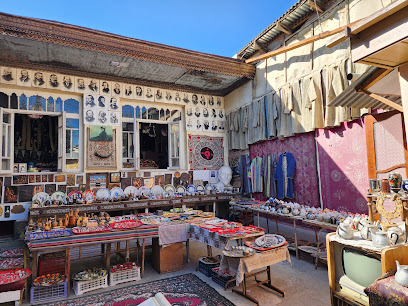
Haydar's Antique Shop & Flea Market
Discover unique antiques and cultural treasures at Haydar's Antique Shop & Flea Market in Samarkand, Uzbekistan, a must-visit for every traveler.
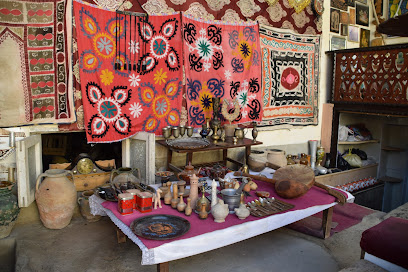
Handicraft center - Центр Ремесленников
Discover the rich tapestry of Uzbek craftsmanship at Samarkand's Handicraft Center, a unique shopping experience showcasing local artisans' talents.
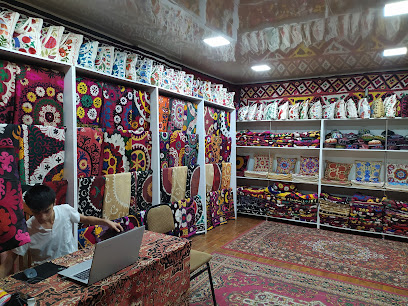
Suveniry
Discover a treasure trove of authentic Uzbek souvenirs at Suveniry, where every item reflects the rich culture and craftsmanship of Uzbekistan.
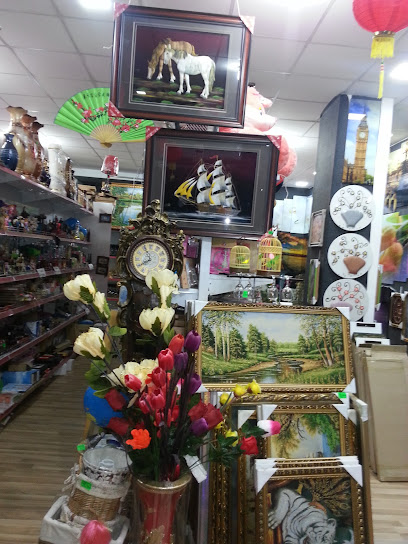
Abduljalil Calligraphy
Discover the exquisite world of calligraphy at Abduljalil Calligraphy in Samarkand's historic Registan Square, where art and tradition converge.
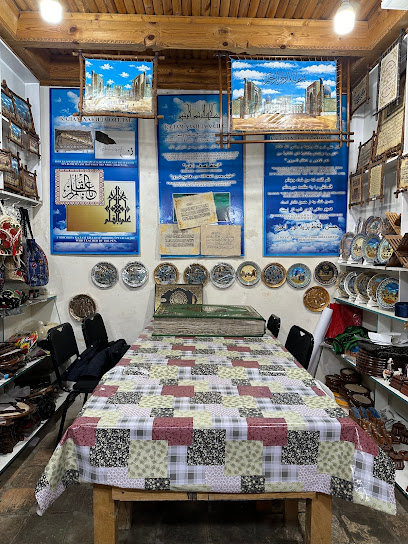
magazin AZIZJON
Experience the vibrant shopping scene of magazin AZIZJON in Samarkand, where local culture meets modern retail and culinary delights.
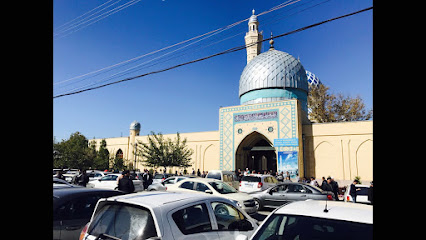
LC Waikiki
Discover stylish and affordable fashion at LC Waikiki in Samarkand’s vibrant Family Park, a shopping experience that blends modern trends with cultural richness.
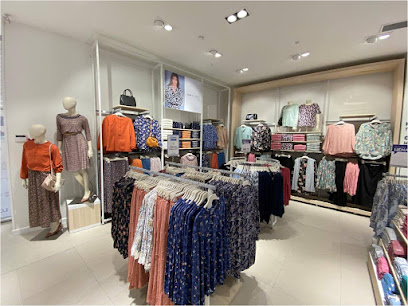
Shirin Market
Discover the heart of Samarkand at Shirin Market, where local flavors and vibrant culture come together in a delightful shopping experience.
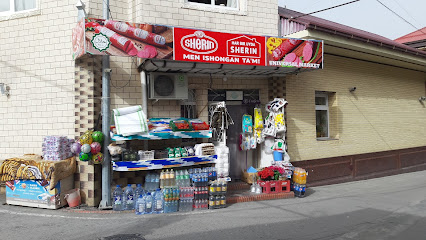
Ozodbek shopping center
Explore the vibrant Ozodbek Shopping Center in Samarkand for an unforgettable shopping experience filled with local culture and international brands.
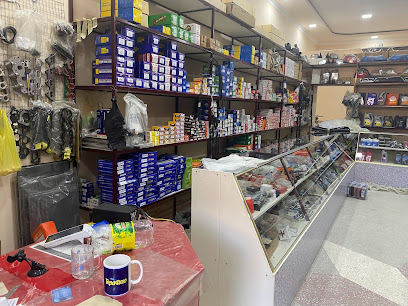
Magazin
Explore the essence of Uzbekistan through unique crafts and cultural treasures at Magazin, a must-visit store in Samarkand.

Дисуз бутик
Explore Дисуз бутик in Samarkand for unique souvenirs that embody the rich culture and heritage of Uzbekistan.
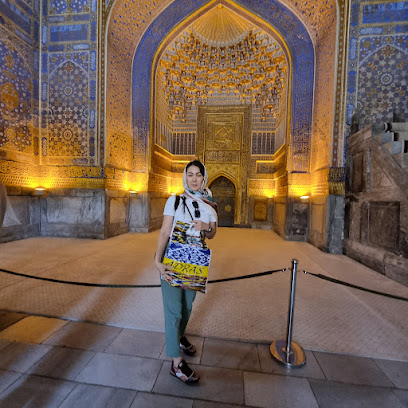
Stefano
Explore the boutique charm of Stefano in Samarkand, where local crafts and unique fashion reflect Uzbekistan's rich cultural heritage.
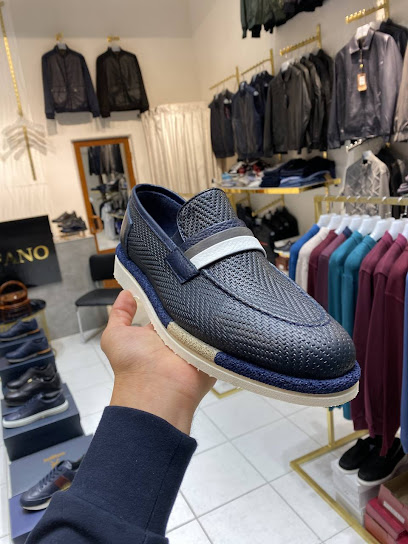
Umidjon market
Discover the essence of Uzbekistan at Umidjon Market in Samarkand, where vibrant culture meets local craftsmanship and delicious cuisine.

Essential bars & hidden hideouts
Blues Bar
Discover the vibrant nightlife and local culture at Blues Bar in Samarkand, where refreshing drinks and live music await you.
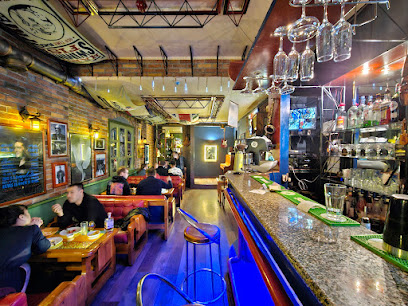
Green Bear Bar
Discover the vibrant nightlife at Green Bear Bar in Samarkand, where local flavors meet a welcoming atmosphere for an unforgettable experience.
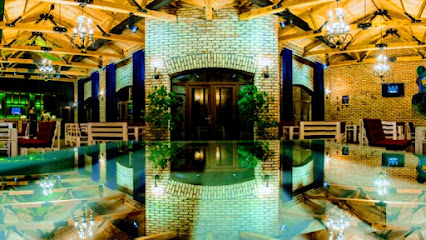
Bochka
Discover Bochka in Samarkand, a vibrant pub offering local flavors and a lively atmosphere perfect for unwinding after exploring the historic city.
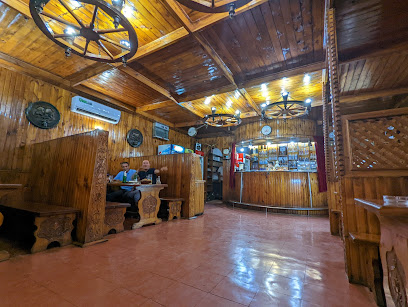
Beer Street Pub
Discover the lively Beer Street Pub in Samarkand, where local culture meets refreshing drinks and a warm atmosphere for tourists.
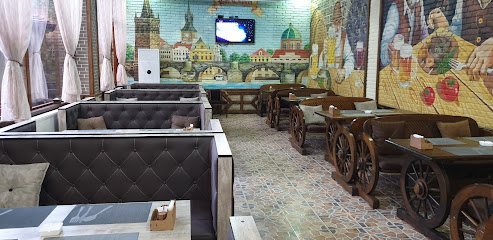
Sam Craft
Discover the vibrant atmosphere and unique drink offerings at Sam Craft, a must-visit bar in the heart of Samarkand, Uzbekistan.
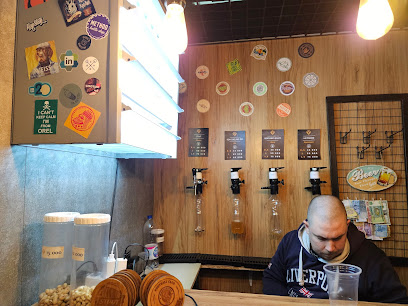
Sophia Restaurant Lounge
Experience the culinary brilliance of Sophia Restaurant Lounge in Samarkand, where traditional flavors meet modern elegance in a stunning setting.
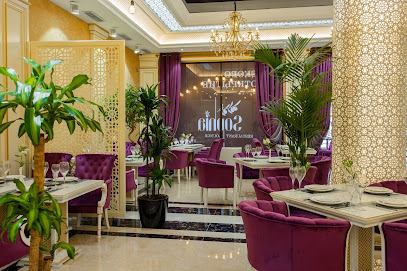
Cafe Bar ʼPeopleʼ
Discover the vibrant ambiance of Cafe Bar 'People' in Samarkand, where locals and tourists gather for drinks, music, and unforgettable experiences.
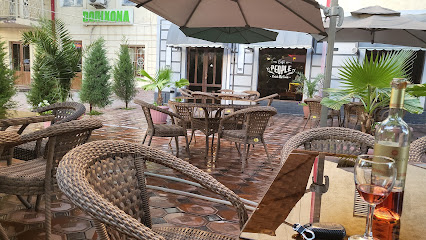
Sam Craft PUB
Experience the vibrant nightlife and local craft beers at Sam Craft PUB in historic Samarkand, a perfect spot for relaxation and socializing.
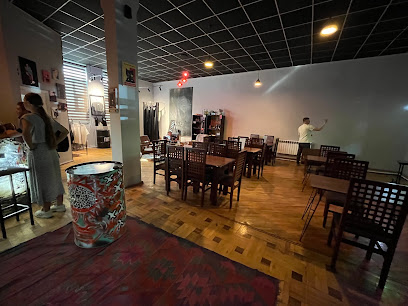
Rubai Bar
Experience the luxurious ambiance and exquisite drinks at Rubai Bar in Samarkand, a perfect retreat for tourists and locals alike.

The Roof lounge
Discover The Roof Lounge in Samarkand, a stylish bar with stunning views and a vibrant atmosphere, perfect for unwinding after a day of exploration.
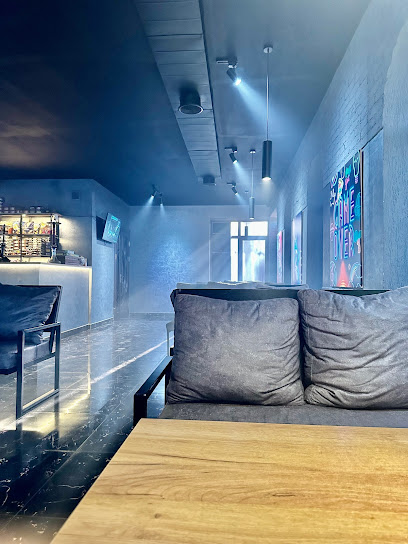
Lux Bar
Discover the vibrant nightlife of Samarkand at Lux Bar, where karaoke meets a lively club atmosphere for an unforgettable experience.
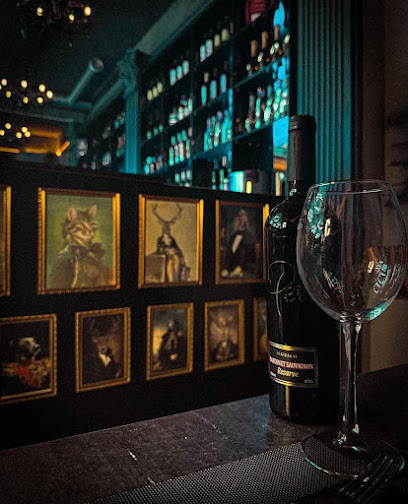
Suzani lounge bar
Suzani Lounge Bar in Samarkand offers a unique blend of traditional Uzbek cuisine and modern ambiance, perfect for a delightful dining experience.
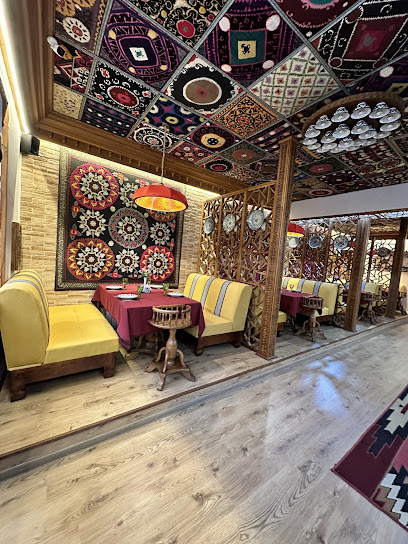
Expert lounge_bar
Experience vibrant nightlife and exquisite drinks at the Expert Lounge Bar, a cultural hub in the heart of Samarkand for every traveler.

Dastan Bar
Experience the essence of Uzbek cuisine at Dastan Bar in Samarkand, where tradition meets flavor in a cozy setting.
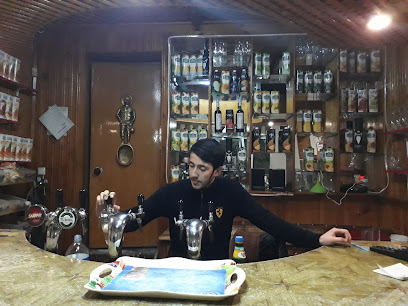
Local Phrases
-
- HelloСалом
[Salom] - GoodbyeХайр
[Khayr] - YesҲа
[Ha] - NoЙўқ
[Yo'q] - Please/You're welcomeМарҳамат
[Marhamat] - Thank youРаҳмат
[Rahmat] - Excuse me/SorryКечиринг/Кечирасиз
[Kechiring/Kechirasiz] - How are you?Қалсизми?
[Qalsizmi?] - Fine. And you?Жуда яхши. Сизча?
[Juda yaxshi. Sizcha?] - Do you speak English?Инглизча ёзасизми?
[Ingilizcha yozasizmi?] - I don't understandМени тушунмадим
[Meni tushunmadim]
- HelloСалом
-
- I'd like to see the menu, pleaseМенюни кўрмоқчиман, илтимос
[Menyuni ko'rmoqchiman, iltimos] - I don't eat meatМен гўсht ёмайман
[Men go'sht yomayman] - Cheers!Тинчликлар!
[Tinchliklar!] - I would like to pay, pleaseТўловни хоҳлайман, илтимос
[Tolovni hohlaiman, iltimos]
- I'd like to see the menu, pleaseМенюни кўрмоқчиман, илтимос
-
- Help!Ёрдам!
[Yordam!] - Go away!Ёп кетинг!
[Yop keting!] - Call the Police!Полицияни чақиринг!
[Poliyani chaqiring!] - Call a doctor!Докторни чақиринг!
[Doktorni chaqiring!] - I'm lostМен йўл йўлдаман
[Men yo'l yo'ldaman] - I'm illМен касалман
[Men kasalman]
- Help!Ёрдам!
-
- I'd like to buy...Сотиб олишни истайман...
[Sotib olishni istayman...] - I'm just lookingФақат кўриб чиқармоқдаман
[Faqat ko'rib chiqarmoqdaman] - How much is it?Берган нархи қандай?
[Bergan narxi qanday?] - That's too expensiveУшбу очиқ чеклама
[Ushbu ochiq cheklama] - Can you lower the price?Нархни тўлашга болаолмисизми?
[Narxni to'lashga boloalmisizmi?]
- I'd like to buy...Сотиб олишни истайман...
-
- What time is it?Соат қачон?
[Soat qachon?] - It's one o'clockБир соат бўлди
[Bir soat boldi] - Half past (10)Он бир ёрдамда
[On bir yardamda] - MorningБомдод
[Bomdod] - AfternoonТустинки
[Tustinki] - EveningКеч
[Kech] - YesterdayКеча
[Kecha] - TodayБугун
[Bugun] - TomorrowЭртага
[Ertaga] - 1Бир
[Bir] - 2Икки
[Ikki] - 3Уч
[Uch] - 4Тўрт
[To'rt] - 5Беш
[Besh] - 6Олти
[Olti] - 7Етти
[Etting] - 8Саккиз
[Sakkiz] - 9Тўqqиз
[To'qqiz] - 10Он
[On]
- What time is it?Соат қачон?
-
- Where's a/the...?Қайда...
[Qayda...] - What's the address?Манзил қаерда?
[Manzil qayerda?] - Can you show me (on the map)?Менга кўрсатасизми (харитада)?
[Menga korsatisizmi (haritada)?] - When's the next (bus)?Кейинги (автобус) қачон?
[Keyingi (avtobus) qachon?] - A ticket (to ....)Билет (.... га)
[Bilet (.... ga)]
- Where's a/the...?Қайда...
History of Samarkand
-
Samarkand, one of the oldest continuously inhabited cities in Central Asia, was founded around the 7th century BC. Initially known as Afrasiab, it became a significant cultural and trading center due to its strategic location on the Silk Road. Early inhabitants were part of the Sogdian civilization, known for their advanced skills in trade, agriculture, and craftsmanship.
-
In 329 BC, Alexander the Great conquered Samarkand, then known as Maracanda. The city was a key prize in his campaign to control Central Asia. Alexander's occupation brought a fusion of Greek and local Sogdian culture, leaving a lasting impact on Samarkand's art, architecture, and urban planning.
-
By the 8th century AD, Samarkand had become a prominent city under the Umayyad and later the Abbasid Caliphates. The introduction of Islam transformed the city into a significant center for Islamic learning and culture. Scholars from Samarkand contributed to various fields, including astronomy, mathematics, and medicine.
-
In the 14th century, Timur (Tamerlane) made Samarkand the capital of his empire. The city experienced a renaissance, becoming a hub of art, science, and architecture. Timur and his successors commissioned magnificent buildings, including the Registan, Bibi-Khanym Mosque, and the Shah-i-Zinda necropolis, adorned with intricate tilework and grand designs.
-
During the Timurid era, Samarkand thrived as a key node on the Silk Road, facilitating trade between China, the Middle East, and Europe. The city became a melting pot of cultures, languages, and goods, enhancing its reputation as a cosmopolitan center of commerce and culture.
-
In the 19th century, Samarkand fell under the control of the Russian Empire. This period saw significant changes in the city's infrastructure and governance. Russian influence introduced new architectural styles, modern education systems, and expanded trade networks, while traditional Uzbek culture continued to thrive.
-
After the Russian Revolution, Samarkand became part of the Soviet Union in 1924. The Soviet period brought industrialization, modernization, and social changes. Many historical sites were restored or repurposed, and the city saw improvements in public infrastructure. However, Soviet policies also led to cultural suppression and changes in traditional lifestyles.
-
Following Uzbekistan's independence in 1991, Samarkand has undergone a cultural and economic revival. Efforts have been made to preserve and promote its rich historical heritage. The city has become a major tourist destination, attracting visitors from around the world to its ancient monuments, vibrant bazaars, and cultural festivals.
Samarkand Essentials
-
Samarkand is accessible via Samarkand International Airport, which has flights connecting to major cities in Uzbekistan and some international destinations. Alternatively, you can fly into Tashkent International Airport and take a high-speed train (Afrosiyob) or a regular train (Sharq) to Samarkand. The train journey from Tashkent to Samarkand takes approximately 2 to 3 hours. Buses and taxis are also available for travel between cities.
-
Samarkand has various modes of transportation, including buses, marshrutkas (shared minibuses), and taxis. Buses and marshrutkas are the most economical options for getting around the city. Taxis are relatively affordable, but it is advisable to negotiate the fare before starting your journey. For a more immersive experience, consider renting a bicycle to explore the city at your own pace.
-
The official currency in Uzbekistan is the Uzbekistani Som (UZS). While credit cards are accepted in some hotels, restaurants, and shops, it is recommended to carry cash, especially when visiting local markets or smaller establishments. ATMs are widely available in Samarkand, but it is a good idea to have some cash on hand for small transactions.
-
Samarkand is generally a safe destination for tourists. However, it is important to take standard precautions such as avoiding walking alone at night in unfamiliar areas and keeping an eye on your belongings in crowded places. The Registan area and other major tourist attractions are usually safe, but be cautious of pickpockets. There are no specific high-crime areas targeting tourists, but staying vigilant is always advisable.
-
In case of emergency, dial 101 for fire, 102 for police, and 103 for medical assistance. Samarkand has several hospitals and medical facilities that can provide emergency care. It is recommended to have travel insurance that covers medical emergencies. Pharmacies are available throughout the city where you can purchase over-the-counter medications.
-
Fashion: Do dress modestly, especially when visiting religious sites. Avoid wearing revealing clothing. Religion: Do respect local customs and traditions. Remove your shoes before entering mosques and cover your head if required. Public Transport: Do be respectful and give up your seat to elderly passengers. Don't eat or drink on public transport. Greetings: Do greet people with a handshake and use both hands or place your hand over your heart as a sign of respect. Eating & Drinking: Do try local delicacies and accept food offerings graciously. Don't refuse hospitality, as it is considered impolite.
-
To experience Samarkand like a local, visit the Siyob Bazaar where you can buy fresh produce and traditional Uzbek goods. Engage with locals, as they are often friendly and willing to share stories about the city's history and culture. Don't miss visiting the Registan, Shah-i-Zinda, and Bibi-Khanym Mosque. For a unique experience, take a stroll through the old city and explore its narrow alleyways and traditional houses.
Trending Landmark in Samarkand
-
Registan Square
-
Amir Temur Mausoleum Gur-i Amir Сomplex
-
Shah-i-Zinda
-
Siyob Bozor
-
Observatory of Ulugbek
-
Bibi-Khanym Mosque
-
Afrosiyab Settlement
-
Memorial Complex of Imam Al Bukhari
-
Khoja Daniyor Mausoleum
-
Afrasiyab Museum
-
Rukhobod Mausoleum
-
Amir Temur Monument
-
Tilya-Kori Madrasah
-
Sherdor Madrassah
-
Mausoleum of Islam Karimov
Nearby Cities to Samarkand
-
Things To Do in Panjakent
-
Things To Do in Shakhrisabz
-
Things To Do in Djizak
-
Things To Do in Jizzakh
-
Things To Do in Qarshi
-
Things To Do in Navoi
-
Things To Do in Tursunzoda
-
Things To Do in Istaravshan
-
Things To Do in Dushanbe
-
Things To Do in Vahdat
-
Things To Do in Bukhara
-
Things To Do in Khujand
-
Things To Do in Tashkent
-
Things To Do in Chirchiq
-
Things To Do in Angren











